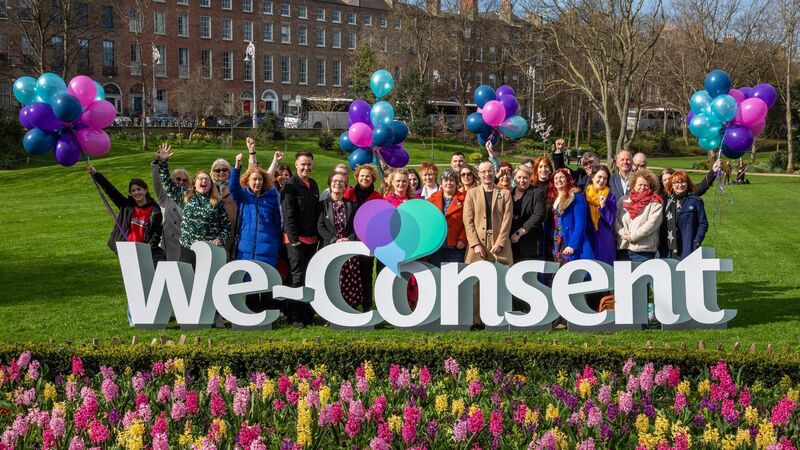Fergus Finlay: We men must have moral courage to learn about consent

Noeline Blackwell (Dublin Rape Crisis Centre), with panellists Chris Rooke, Dr Caroline Kelleher (RCSI), Louise McSharry, comedian Jarlath Regan, Denise Charlton (CFI) and DRCC staff and stakeholders at the launch of DRCC's "We-Consent" campaign. When you look at We-Consent, one of the things you realise is that there’s a lot to learn. Picture: Keith Arkins Media.
There are two words that go to the heart of abuse. The sort of abuse that men (and their institutions), all too often, inflict on women and children. The sort of abuse that is all too often doubled and trebled by the way the same institutions hide and ignore the damage they allow to be done.
But those same two words are also at the heart of recovery, of growth and maturity, of healthier, happier lifestyles. Except they’re in conflict with each other, these two words. Replace one with the other, and the entire world would be a better place. Not easy. But doable.















